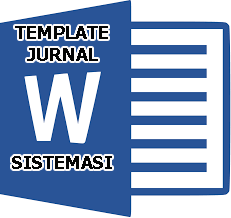Sentiment Analysis on the PT Pertamina Corruption Case using IndoBERT and RCNN Methods
Abstract
While the model demonstrated strong performance in classifying negative comments, accuracy for neutral and positive classes was relatively lower due to semantic overlap and ambiguity in user expressions.
This study contributes to Indonesian-language sentiment analysis by: 1. Integrating the IndoBERT-RCNN architecture for social-political issues, 2. Systematically evaluating hyperparameter combinations for three-class public opinion data, and 3.Utilizing YouTube comments as a relevant source of informal public discourse. The findings have potential applications in real-time digital public opinion monitoring systems for strategic national issues.
Keywords
Full Text:
PDFReferences
A. Mulyadi, “Ada Apa dengan Pertamina? Analisis Hukum terhadap Kasus Korupsi PT. Pertamina Parta Niaga,” Jurnal Anti Korupsi, Vol. 01, No. 1, pp. 37–48, Jun. 2025, doi: 10.19184/jak.v13i1.40004.
D. V. Hartanto, F. Navrizal, F. Surya, H. Berlanty, and M. Naufal, “Menegakkan Keadilan dalam Pengelolaan Sumber Daya Negara (Studi Kasus: Korupsi Pengoplosan di Pertamina),” Inspirasi & Strategi(INSPIRAT): Jurnal Kebijakan Publik & Bisnis, Vol. 16, No. 01, pp. 1–4, 2025.
R. D. Pebrianti, “Analisis Sentimen Masyarakat Platform X terhadap Korupsi PT. Pertamina (Persero) menggunakan Metode SVM,” Jurnal Informatika dan Teknik Elektro Terapan, Vol. 13, No. 2, Apr. 2025, doi: 10.23960/jitet.v13i2.6399.
M. L. Hermanto, F. Fathoni, O. Ardhillah, and A. Ibrahim, “Analisis Sentimen Masyarakat terhadap DANANTARA di Platform X dengan Metode SVM,” JATI (Jurnal Mahasiswa Teknik Informatika), Vol. 9, No. 4, pp. 6779–6785, May 2025, doi: 10.36040/jati.v9i4.14189.
R. I. Agustin, “Komparasi Algoritma Naive Bayes dan SVM untuk Analisis Sentimen Twitter Korupsi Bansos Beras Masa Pandemi,” Jurnal Informatika dan Teknik Elektro Terapan, Vol. 12, No. 2, Apr. 2024, doi: 10.23960/jitet.v12i2.4020.
Y. Zaen Vebrian and Kustiyono, “A Sentiment Analysis of Free Meal Plans on Social Media using Naive Bayes Algorigthm,” Jurnal Inovetek Polbeng - Seri Informatika, Vol. 10, No. 1, pp. 355–366, 2025.
I. Muhandhis, A. S. Ritonga, W. Putra, and R. Benowo, “Public Sentiment Analysis on TikTok about Tapera Policy using Random Forest Classifier,” Sistemasi: Jurnal Sistem Informasi, Vol. 14, No. 1, pp. 354–365, 2025, doi: 10.32520/stmsi.v14i1.4878.
H. Jayadianti, W. Kaswidjanti, A. T. Utomo, S. Saifullah, F. A. Dwiyanto, and R. Drezewski, “Sentiment Analysis of Indonesian Reviews using Fine-Tuning IndoBERT and R-CNN,” ILKOM Jurnal Ilmiah, Vol. 14, No. 3, pp. 348–354, Dec. 2022, doi: 10.33096/ilkom.v14i3.1505.348-354.
M. N. Zaidan, Y. Sibaroni, and S. S. Prasetyowati, “Learning Rate and Epoch Optimization in the Fine-Tuning Process for IndoBERT’S Performance on Sentiment Analysis of MyTelkomsel App Reviews,” Jurnal Teknik Informatika (Jutif), Vol. 5, No. 5, pp. 1443–1450, Oct. 2024, doi: 10.52436/1.jutif.2024.5.5.2396.
Y. A. Singgalen, “Performance Analysis of IndoBERT for Sentiment Classification in Indonesian Hotel Review Data,” Article in Journal of Information System Research, Vol. 6, No. 2, pp. 978–988, 2025, doi: 10.47065/josh.v6i2.6505.
G. Z. Nabiilah, S. Y. Prasetyo, Z. N. Izdihar, and A. S. Girsang, “BERT Base Model for Toxic Comment Analysis on Indonesian Social Media,” in Procedia Computer Science, Elsevier B.V., 2022, pp. 714–721. doi: 10.1016/j.procs.2022.12.188.
H. Ahmadian, T. F. Abidin, H. Riza, and K. Muchtar, “Hybrid Models for Emotion Classification and Sentiment Analysis in Indonesian Language,” Applied Computational Intelligence and Soft Computing, Vol. 2024, No. 1, pp. 1–17, 2024, doi: 10.1155/2024/2826773.
N. Sholihah, F. F. Abdulloh, and M. Rahardi, “Sentiment Analysis on KPU Performance Post-2024 Election via YouTube Comments using BERT,” sinkron, Vol. 8, No. 4, pp. 2222–2232, Oct. 2024, doi: 10.33395/sinkron.v8i4.14040.
R. Merdiansah, S. Siska, and A. Ali Ridha, “Analisis Sentimen Pengguna X Indonesia terkait Kendaraan Listrik menggunakan IndoBERT,” Jurnal Ilmu Komputer dan Sistem Informasi (JIKOMSI), Vol. 7, No. 1, pp. 221–228, Mar. 2024, doi: 10.55338/jikomsi.v7i1.2895.
A. Miaschi and F. Dell’orletta, “Contextual and Non-Contextual Word Embeddings: An in-Depth Linguistic Investigation,” in Proceedings of the 5th Workshop on Representation Learning for NLP, Spandana Gella, Johannes Welbl, Marek Rei, Fabio Petroni, Patrick Lewis, Emma Strubell, Minjoon Seo, and Minjoon Seo, Eds., Association for Computational Linguistics, Jul. 2020, pp. 110–119. doi: 10.18653/v1/2020.repl4nlp-1.15.
W. Wongso, “Indonesian-Roberta-Base-Sentiment-Classifier (Revision e402e46),” 2023, Hugging Face: e402e46. Accessed: Jun. 04, 2025. [Online]. Available: https://huggingface.co/w11wo/indonesian-roberta-base-sentiment-classifier
W. A. Hidayat and V. R. S. Nastiti, “Perbandingan Kinerja Pre-Trained IndoBERT-Base dan IndoBERT-Lite pada Klasisfikasi Sentimen Ulasan Tiktok Tokopedia Seller Center dengan model IndoBERT,” JSiI (Jurnal Sistem Informasi), Vol. 11, No. 2, pp. 13–20, Sep. 2024, doi: 10.30656/jsii.v11i2.9168.
DOI: https://doi.org/10.32520/stmsi.v14i5.5392
Article Metrics
Abstract view : 1393 timesPDF - 383 times
Refbacks
- There are currently no refbacks.

This work is licensed under a Creative Commons Attribution-ShareAlike 4.0 International License.









